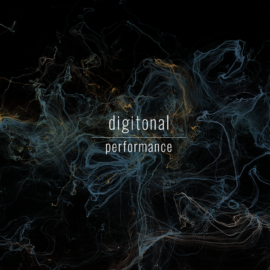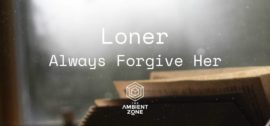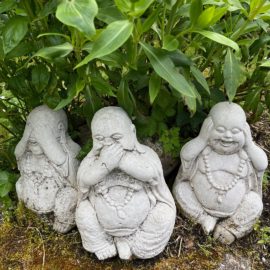
May 9th, 2024
“See No Evil, Hear No Evil, Speak No Evil” – Three Wise Monkeys
The famous maxim of the three wise monkeys was depicted in a 17th century carving over a door in a shrine in Japan and incorporates Confucius’s Code of Conduct and centuries of Buddhist philosophy – its meaning in the East being to avoid evil thoughts and deeds, resulting in living a moral and decent life. It is no accident that when we started our label some 20 years ago we adopted those three monkeys for “Just Music” – a perfect partnership!
“Good can exist without evil, whereas evil cannot exist without good” – Thomas Aquinas
Standing in a crowded train cheek by jowl with fellow passengers, sitting in a park surrounded by children with their mothers and fathers, attending a crowded gig, walking in a busy street – to name but four very ordinary human activities – each one dependent on the good and decent behaviour of others to make the world go round pleasantly and safely. Social interactions that occur endlessly worldwide every day and belie the constant bad news items of news media and social media – the truth is that the vast majority of us are essentially good.
“The corruption of the best things gives rise to the worst” – David Hume
It is a mistake in my view to simply reference general antonyms like ‘dark/light’, ‘hot/cold, ’black/white’, ‘fast/slow’ when considering what ‘evil’ may be. Evil is not the opposite of good. It’s not even the opposite of quite good – which in many instances is good enough! No, I think a better case can be made for evil being a corruption of what is good.
That corruption is depicted in a million and one narratives from time immemorial – the Old Testament apple in the Garden of Eden, a blissful place where just the one temptation leads to the troubles of the world – to Star Wars, an intergalactic battle between those Jedi knights who continue to feel the force for good and those who turned their back on it and went to the dark side. As the saying goes “power corrupts and absolute power corrupts absolutely….”
“Life is neither good or evil but only a place for good and evil” – Marcus Aurelius
Corruption may arise for many reasons and takes many forms – it may be caused by mental health issues, propaganda, indoctrination, peer pressure – the list is endless – but whatever it is, it twists what is rational, so that whilst the motivation may be thought or believed to be good, the outcome is evil. Examples of that evil causing endless misery and suffering are manifold – wars, cruelty, prejudice – you only have to look at the world today and in history. But despite that I still think the vast majority do it for irrational reasons, thinking that they are right and that it’s for the common good.
“To ignore evil is to become an accomplice to it – Martin Luther King
The vast majority of us have the capacity to make ethical choices. I was moved today listening to the story of a child so bullied by social media that it resulted in a suicide. That incident has propelled the call for legislation to protect children from the online bombardment of what would have been described as “evil” all those centuries ago by those three wise monkeys looking to guard us against it. We would do well to learn that lesson, not only to protect our children, but also to include us grown up children as well.

Marconi Union – TFONLEPRMX EP
Jan 28th, 2026
Marconi Union release their TFONLEPRMX EP today, featuring reworks from Carbon Based Lifeforms and Pye Corner Audio.
Marconi Union release their TFONLEPRMX EP today, featuring reworks from Carbon Based Lifeforms and Pye Corner Audio.
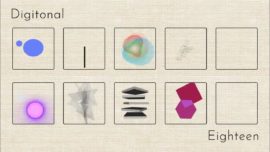
Digitonal – Eighteen (Official Music Video)
Jul 25th, 2025
Today we also share a brand new video for Beautiful Broken single ‘Eighteen’, animated by Andy Dobson himself.
Today we also share a brand new video for Beautiful Broken single ‘Eighteen’, animated by Andy Dobson himself.

Just a Thought – Here Comes The Sun | July 2025
Jul 25th, 2025
“Summertime, and the living is easy. Fish are jumping, and the cotton is high.”
“Summertime, and the living is easy. Fish are jumping, and the cotton is high.”
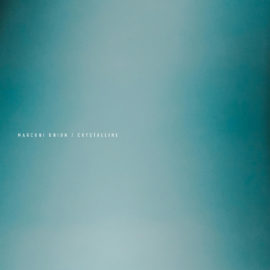
New Single: Crystalline
Marconi UnionMay 14th, 2025
Today we share the final single from the new Marcon Union album, Crystalline
Today we share the final single from the new Marcon Union album, Crystalline

New Release: Silence Is Gliding – Marconi Union
Marconi UnionApr 16th, 2025
“It’s the idea of switching the engines off and freeing yourself from the noise of everyday life.”
“It’s the idea of switching the engines off and freeing yourself from the noise of everyday life.”

Essential Ambient | Curated by Glenn Gregory
Apr 15th, 2025
Essential Ambient, as curated by Heaven 17 & Honeyroot frontman Glenn Gregory
Essential Ambient, as curated by Heaven 17 & Honeyroot frontman Glenn Gregory

Marconi Union – New Album and Single | The Fear of Never Landing
Marconi UnionMar 20th, 2025
Their twelfth studio album, The Fear of Never Landing, is set for release 6th June. The news is paired with the release of first single Eight Miles High Alone, and accompanied by the official music video.
Their twelfth studio album, The Fear of Never Landing, is set for release 6th June. The news is paired with the release of first single Eight Miles High Alone, and accompanied by the official music video.
Just a Thought – As a Matter of Fact… | September 2024
Sep 5th, 2024
“”If everything isn’t black & white, I say, “why the hell not”… – John Wayne
“”If everything isn’t black & white, I say, “why the hell not”… – John Wayne
